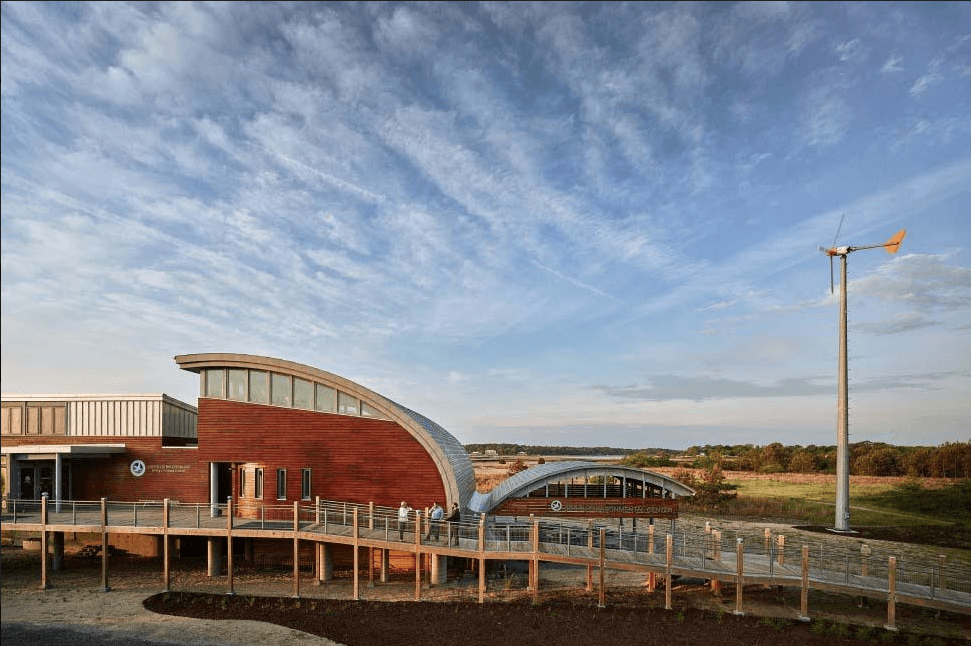Potential ecological research facility to be developed along Rappahannock River
3 min read
Architect Magazine
By VINCENT SMIROLDO
Staff Writer
UMW could soon offer a hands-on research experience to students through the development of an ecology park on the Rappahannock River.
Buck Cox, an environmental engineer, entrepreneur and Fredericksburg native hopes to make this project a reality by teaming up with Virginia Tech and local volunteers to develop the Rappahannock River Ecology Park. The facility would offer opportunities for students to get real-world experience and prepare for a future career.
Kieran Burns is a senior at UMW with a geography major, environmental sustainability minor and GIS certification. He is currently a GIS intern at the City of Fredericksburg Environmental Planning Department. Much of Burns’ day-to-day work and environmental science labs are similar to opportunities that could be found at the ecopark.
“I think that the ecopark would bring an out of classroom experience that’s even better than you can get in a lab,” Burns said. “It will also give UMW a learning experience that most other universities don’t have.”
Faculty members could also take advantage of the resources provided by the new ecopark. This includes hands on research that would apply to class material and important environmental factors that are being researched.
Environmental science professor John Tippett served as executive director of Friends of the Rappahannock (FOR) for 20 years. He said students would benefit from the development of the facility.
“I think it’s hard to beat the experience that comes with working on a real-world project with meaningful implications for the community,” he said.

Students would also be able to take advantage of internship and volunteer opportunities through the ecopark. The FOR has previously offered internships and opportunities to UMW students. The FOR has not been able to meet the demand of internships and a facility like this would help to meet the demand for environmental focused internships.
“The potential opportunities could include water quality and sediment analysis, wildlife and ecological studies, pollution prevention and restoration projects, environmental policy analysis, and community education,” Tippett said.
These are just a few of the types studies that would be conducted by students and other researchers. The ecopark would be located close enough to the university to change the dynamics of the environmental science classes offered.
Keith Mellinger was recently appointed as the Dean of Arts and Science Mathematics in the summer of 2018. He spoke on a possible vision for the ecopark.
“I know that the donor [Buck Cox] is passionate about Fredericksburg and the Rappahannock, and that he would like the facility to focus on both research and education.”
The ecopark would also allow for more research to be done on the Rappahannock ecosystems and their conservation.
Much of the inspiration for the Rappahannock ecopark stems from the Chesapeake Bay Foundation’s Brock Environmental Center in Virginia Beach. This facility conducts research on the Chesapeake Bay ecosystem and how it can be improved. The hope is that this facility would be up to the standard of the Environmental Center in Virginia Beach. The Rappahannock River facility would be able to conduct experiments on the ecosystem that eventually leads into Chesapeake Bay.
Many details about the future of the ecopark remain uncertain. According to Mellinger, it is still too early to determine the extent and nature of Virginia Tech and UMW’s involvement with the project.
Cox has previously mentioned that if this facility is built in Fredericksburg that other departments at UMW could be involved with planning. It could offer business students an opportunity to be involved with a large scale development project.
Additionally, the ecopark needs time, funding and a finalized location to break ground.











